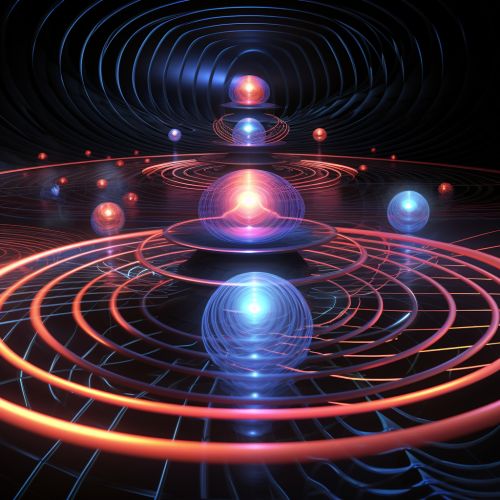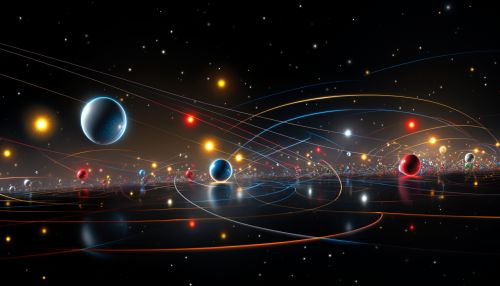Quantum coherence
Introduction
Quantum coherence is a fundamental concept in quantum mechanics that describes the phenomenon of superposition in quantum systems. It is a key principle that differentiates quantum mechanics from classical physics and is essential to understanding phenomena such as quantum entanglement, quantum superposition, and quantum interference.


Quantum Coherence and Superposition
In quantum mechanics, the principle of superposition states that a quantum system can exist in multiple states simultaneously. This is a direct result of the wave-like nature of quantum particles. Quantum coherence is the mathematical framework that describes this superposition of states. In a coherent quantum system, the phase relationships between the different states are well-defined and do not change over time.
Quantum Coherence and Interference
Quantum interference is another phenomenon that can be explained by quantum coherence. Interference occurs when two or more waveforms superpose to form a resultant wave of greater or lower amplitude. In quantum mechanics, this can be observed in experiments such as the double-slit experiment, where particles such as electrons or photons are sent through two slits and create an interference pattern on a screen.


Quantum Coherence and Entanglement
Quantum entanglement is a phenomenon where two or more particles become linked and the state of one particle is immediately connected to the state of the other, no matter the distance between them. This phenomenon is a direct result of quantum coherence, as the entangled particles exist in a superposition of states and the measurement of one particle immediately affects the state of the other.
Measurement and Decoherence
One of the key features of quantum mechanics is the role of measurement. In classical physics, measurements do not affect the system being measured. However, in quantum mechanics, the act of measurement can cause a quantum system to lose its coherence, a process known as quantum decoherence. Decoherence is a major obstacle in the development of quantum computing and quantum information technology, as it causes quantum systems to behave more like classical systems, losing the advantages of quantum superposition and entanglement.


Quantum Coherence in Technology
Quantum coherence is a key principle in the development of quantum technology, such as quantum computing and quantum cryptography. In quantum computing, quantum bits or 'qubits' exist in a superposition of states, allowing for the simultaneous processing of a vast number of computations. However, maintaining quantum coherence in these systems over time is a significant challenge due to decoherence.


